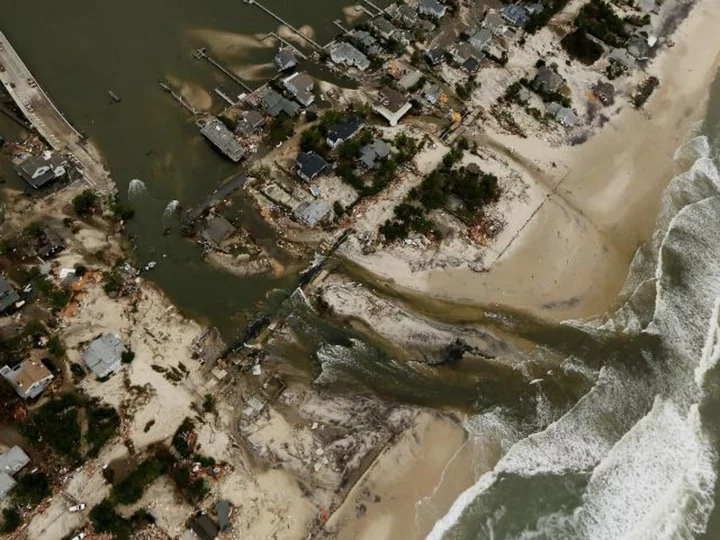
Teenager’s death after drinking too much water was ‘preventable’
The death of a mentally ill teenager after he drank excessive amounts of water may have been prevented if his care and treatment had been delivered differently, an investigation has found. The 18-year-old was admitted out of hours to an adult mental health service inpatient unit in a health board neighbouring his own on 5 December 2018 as there were no local beds available – a move described in the report as a “high-risk action”. On the evening of 7 December, he suffered a seizure after drinking too much water and was transferred to intensive care. He died three days later from the consequences of water intoxication. The teenager, referred to as Mr D, had previous contact with Child and Adolescent Mental Health Services (CAMHS), where he had been treated after drinking an excessive quantity of water. He was diagnosed with early onset psychosis and received two years of community-based CAMHS care. An anonymised investigation by the Mental Welfare Commission for Scotland concluded there were “aspects of the care and treatment delivered by each health board which had it been conducted differently, might have prevented Mr D’s death”. The report, which made 10 recommendations, also said: “A more assertive approach to the treatment of Mr D’s psychotic illness in the two years before his death was warranted.” Mr D’s death came almost two years after he was first admitted as an emergency to an acute general hospital in January 2017 following a seizure due to water intoxication, aged 16. The seizure was induced by drinking large quantities of water, which he believed would remove toxins from his system. This affected his sodium metabolism (blood salts) with near fatal consequences. He later spent more time as an inpatient and turned 18 while still under the care of the CAMHS specialist psychosis service. The transfer of a very unwell young man with a complex clinical history to another health board area during the night was a high-risk action Suzanne McGuinness, Mental Welfare Commission The service was moving away from a treatment model that supported young people with first onset psychosis for at least three years from the point of diagnosis, towards one in which transition to adult mental health services began around the age of 18. He was admitted to a hospital in Scotland in December 2018 while detained under the Mental Health Act. The investigation also found that during the 70 hours after that admission to hospital, Mr D’s case records from his years of contact with the CAMHS community team were unavailable. The report said: “The failure to impart key clinical details to the treating ward staff during his final admission, both in the provision of all relevant case files and the creation of an informed and updated risk assessment and care plan, meant Mr D was able to engage in risky and ultimately fatal psychosis-driven behaviour without mitigations having been put in place.” The report makes recommendations for change to bodies including the health boards involved, the Royal College of Psychiatrists, NHS Education Scotland and the Scottish Government. They include that the Government should set standards within the next six months for the safe transfer to, or management of patients who present from other health boards. Suzanne McGuinness, executive director for social work at the Mental Welfare Commission, said: “This was a tragic death of a young man while he was being cared for in hospital. “Our report details the actions and decisions taken by teams at the two health boards involved in the lead-up to his death.” She said the risks associated with psychotic illness were “not coherently managed”. She added: “We also found that there were problems in Mr D’s transition from child and adolescent mental health services to adult mental health services. Existing guidance was not adhered to. “We found that although the service had no other viable option, the transfer of a very unwell young man with a complex clinical history to another health board area during the night was a high-risk action. “Mr D’s family told us they felt that they had not been listened to. They felt their concerns were not given due credence.” She urged mental health services across Scotland to read the report and take action where they believe they can make improvements. A Scottish Government spokesperson said: “The death of any person in care is not acceptable. “It is vital that people using our mental health services feel safe and know they will receive the right help, in the right place when they need it. “The relevant health boards and health and social care partnerships in this case have been issued with specific recommendations and learning points alongside general recommendations for all health boards and HSCPs. We expect the commission’s recommendations to be fully implemented. “The Mental Welfare Commission recommended that the Scottish Government set standards for the safe transfer of patients between health boards. “We will publish core mental health standards in the coming weeks to set clear expectations for transitions between and within mental health services.” Read More More parents letting children skip school and take term-time holidays post-Covid Student accused of fatally shooting UNC professor may be mentally unfit for trial Family of man who died while being admitted to psychiatric hospital agrees to $8.5M settlement Charity boss speaks out over ‘traumatic’ encounter with royal aide Ukraine war’s heaviest fight rages in east - follow live
2023-09-21 13:54

20 of the Best Pumpkin Spice Products to Satisfy Your Autumnal Obsession
From flavored coffee to candles that'll make your whole house smell like a freshly baked pie, these pumpkin spice products are perfect for fall.
2023-09-20 05:29

Ian Eagle Nails Taylor Swift Reference on Travis Kelce Touchdown Catch
Ian Eagle made a great Taylor Swift reference after Kelce's first touchdown.
2023-09-18 03:52

Groundbreaking migraine treatment offers ‘new hope’ for patients
A treatment for acute migraines has been approved for NHS use for the first time, with experts saying the move could be a “step-change” for thousands of people who suffer from the condition. The National Institute for Health and Care Excellence (Nice) said its final draft guidance on Rimegepant “addresses the high unmet need for treatment options for acute migraine”. Rimegepant, also known as Vydura and made by Pfizer, will be available to adults who have tried at least two triptans – medication usually given to tackle headaches or migraines – but found they did not work well enough. It can also be administered to those who are not able to take triptans or have an intolerance, or patients who have tried nonsteroidal anti-inflammatory drugs (NSAIDs) and paracetamol. Helen Knight, director of medicines evaluation at Nice, said: “Migraine is a condition described in comments to Nice from carers and people with migraine as an invisible disability that affects all aspects of life including work, education, finances, mental health, social activities and family. “Today’s final draft guidance addresses the high unmet need for treatment options for acute migraine, once again demonstrating our ability to ensure clinically and cost-effective medicines are available to those who need them as quickly as possible.” Rimegepant is taken as a wafer, which dissolves under the tongue and works by stopping the release of a protein around the brain called calcitonin gene-related peptide. In July, the medicine was recommended as an option for preventing episodic migraines in adults who have at least four and fewer than 15 attacks per month if “at least” three other treatments have not worked. This is the first and only Nice-recommended medicine that can help alleviate the misery of acute migraines, and may be considered a step-change in treatment Helen Knight, Nice Under the latest guidance, it will also be used to relieve symptoms of a migraine, which can include pain, nausea and sensitivity to light, but also painless symptoms such as temporary visual disturbances known as “aura”, which Nice said “is not well managed with existing treatments”. The recommendation is expected to benefit about 13,000 people. Ms Knight added: “This is the first and only Nice-recommended medicine that can help alleviate the misery of acute migraines, and may be considered a step-change in treatment.” Migraine is an incredibly misunderstood condition that can have a significant impact on all areas of life, including ability to work, maintain relationships and mental health Robert Music, The Migraine Trust Robert Music, chief executive of The Migraine Trust, said the Nice guidance “provides people with migraine valuable options to help reduce the pain and length of a migraine attack”. “It brings new hope,” he added. “It will especially benefit those who have not found a treatment that works, those who get debilitating side effects – including medicine overuse headache – from them, and those with cardiovascular disease who cannot take existing treatments. “Migraine is an incredibly misunderstood condition that can have a significant impact on all areas of life, including ability to work, maintain relationships and mental health.” Read More NHS winter resilience fund announced by Government NHS reliance on paper notes ‘stopping trusts from realising full potential’ Recession fears as UK economy shrinks by more than expected in shock decline Charity boss speaks out over ‘traumatic’ encounter with royal aide Ukraine war’s heaviest fight rages in east - follow live
2023-09-14 11:52

Ongoing neglect in New Jersey's state-run veteran nursing homes allowed Covid-19 to spread 'virtually unchecked,' DOJ investigation finds
Veterans' constitutional rights continue to be violated in two of New Jersey's state-run veterans nursing homes after a lack of basic hygiene and infection control in the facilities allowed Covid-19 to spread "virtually unchecked" in the pandemic's early days, according to a Justice Department report released Thursday.
2023-09-08 11:53

Warning: Using Dish Soap in Your Laundry Machine Is a Bad Idea (Regardless of What TikTok Says)
Not all TikTok hacks are actually hacks. Here’s why you shouldn’t wash clothes with dish soap.
2023-08-17 23:28

US launches $8.5 billion in rebates for home energy efficiency
By Timothy Gardner WASHINGTON The Department of Energy said on Thursday it is accepting applications from states and
2023-07-28 03:20

The Nordstrom Anniversary Sale Is Back—and Here Are 65 of the Best Deals You Don’t Want To Miss
You can get deals from leading brands like Birkenstock, Free People, Drybar, and more during the Nordstrom Anniversary Sale 2023.
2023-07-19 02:27

Roundup: Nina Agdal, Logan Paul Engaged; Anthony Edwards Lands Huge Extension; Home Run Derby Contestants Revealed
Nina Agdal and Logan Paul are engaged, Anthony Edwards got a huge extension, MLB Home Run Derby contestants revealed and more in the Roundup.
2023-07-04 19:20

Amazon Smart Air Quality Monitor Review
Editors' Note: This is the most recent version of the Amazon Smart Air Quality Monitor.
2023-06-23 01:47

Windrush: Hak Baker says why singing about it now feels right
Hak Baker's been releasing songs since 2017 but only now feels he can put music out about Windrush.
2023-06-22 19:58

Thousands of Americans are leaving homes in flood-risk areas. But where are they moving to?
Data from thousands of home buyouts shows people aren't moving that far from their original homes — and often they are moving within the same floodplain.
2023-06-21 23:59
